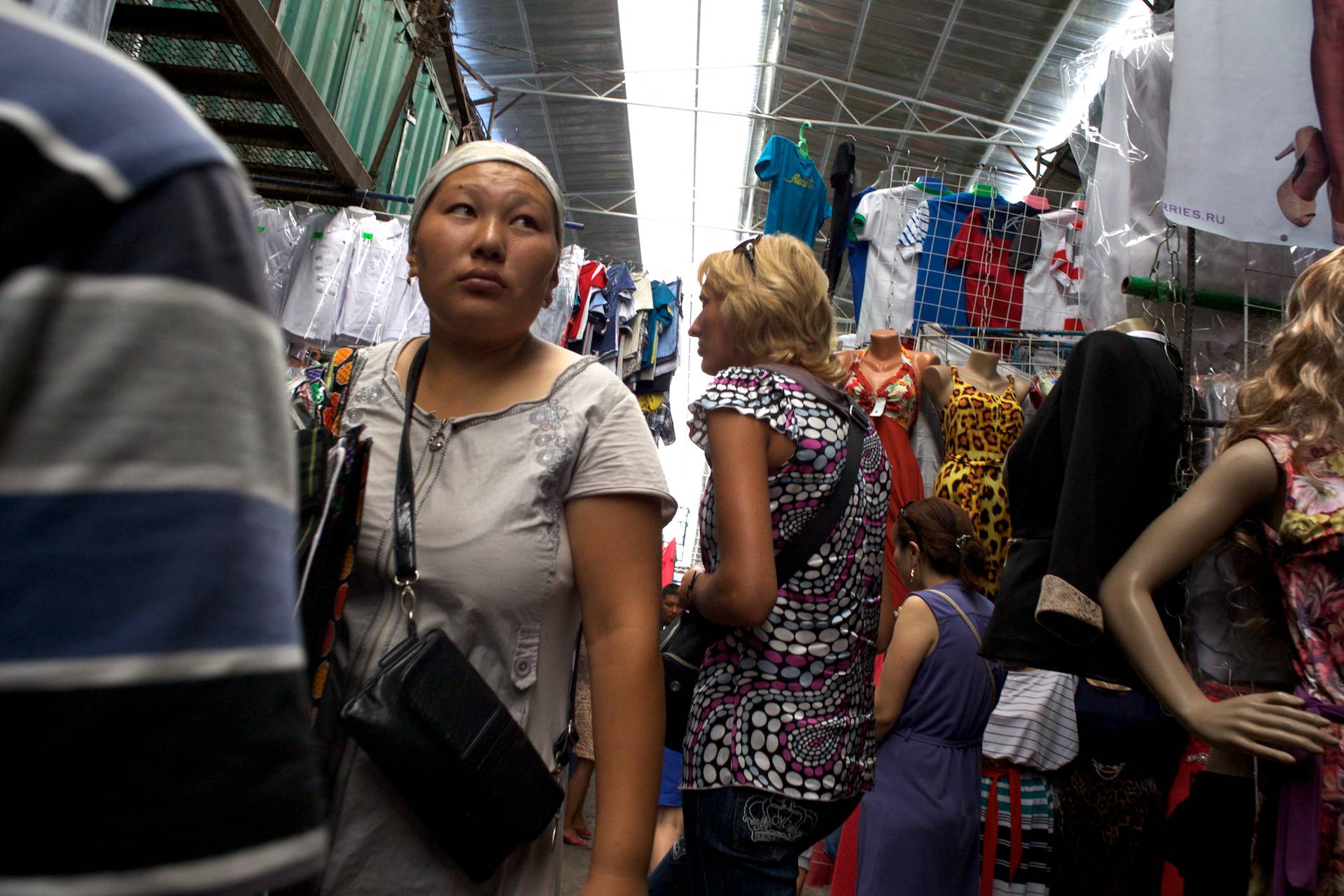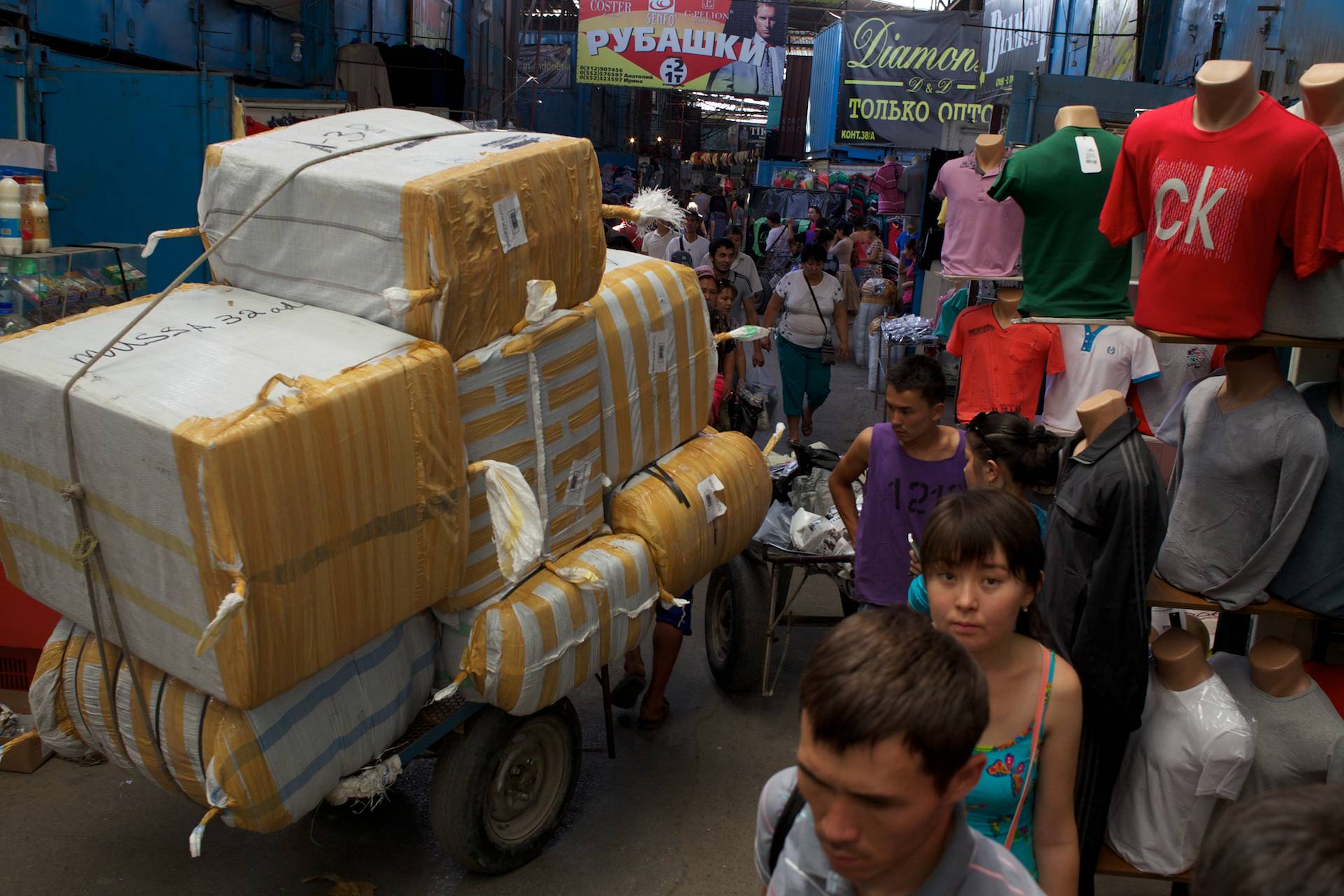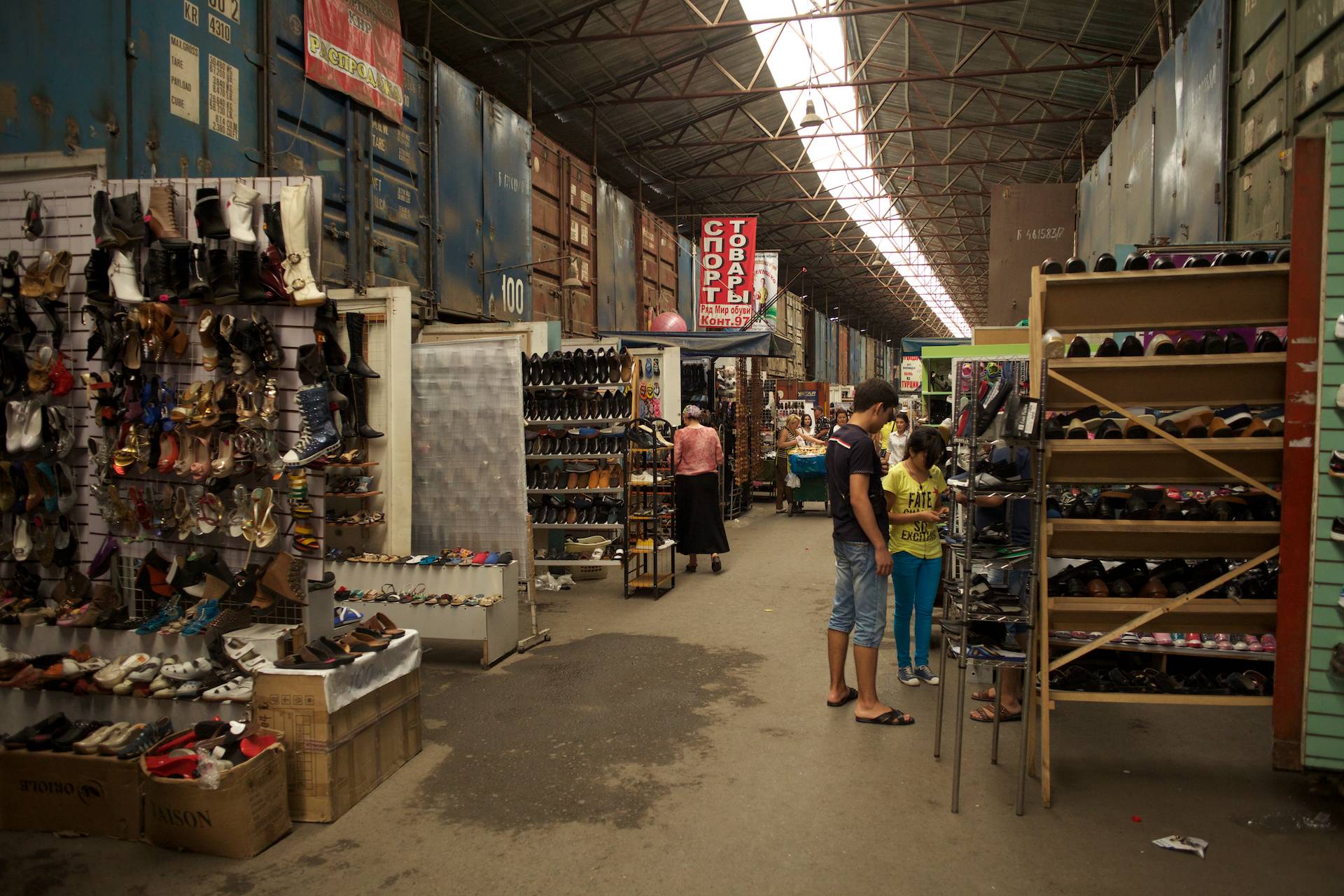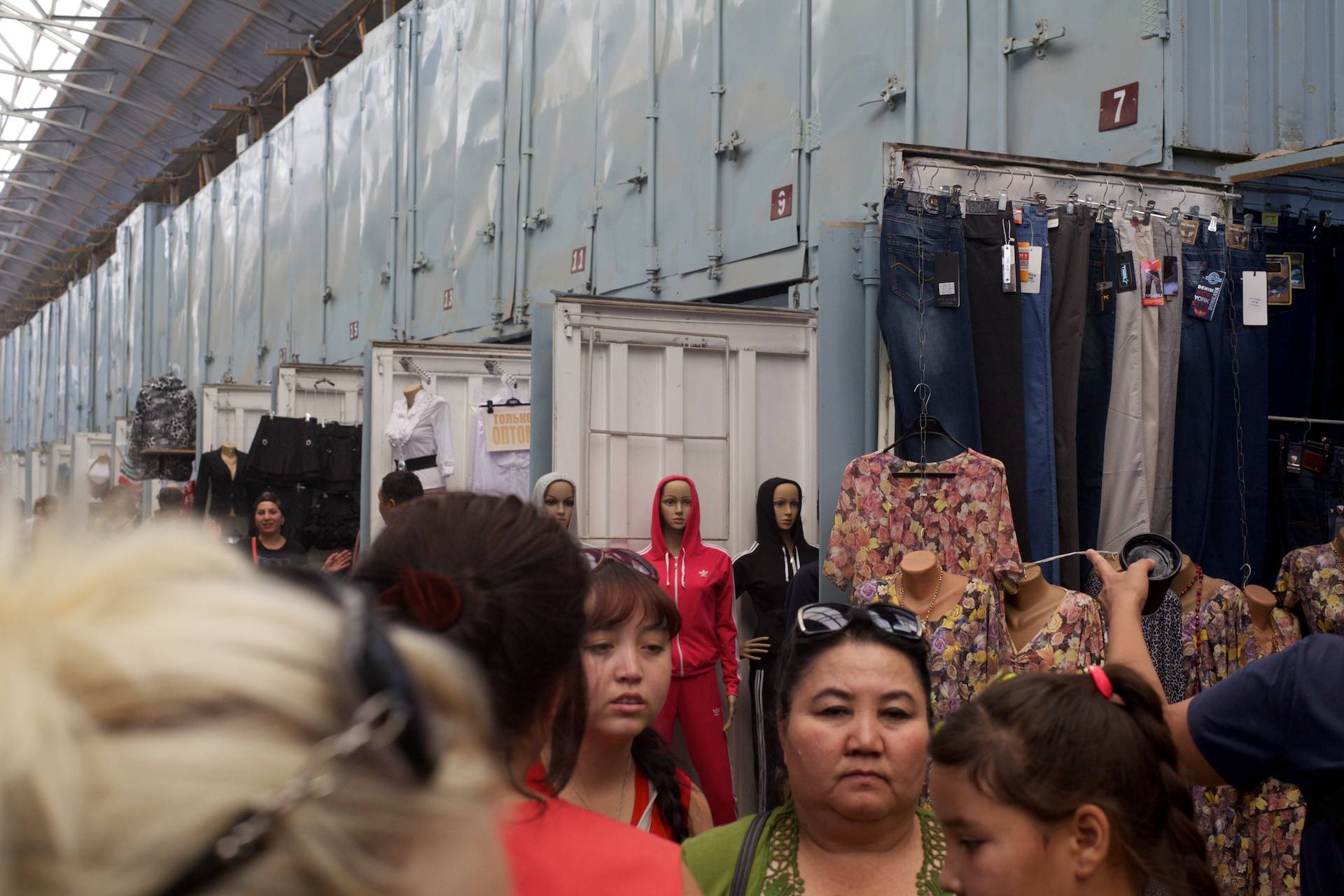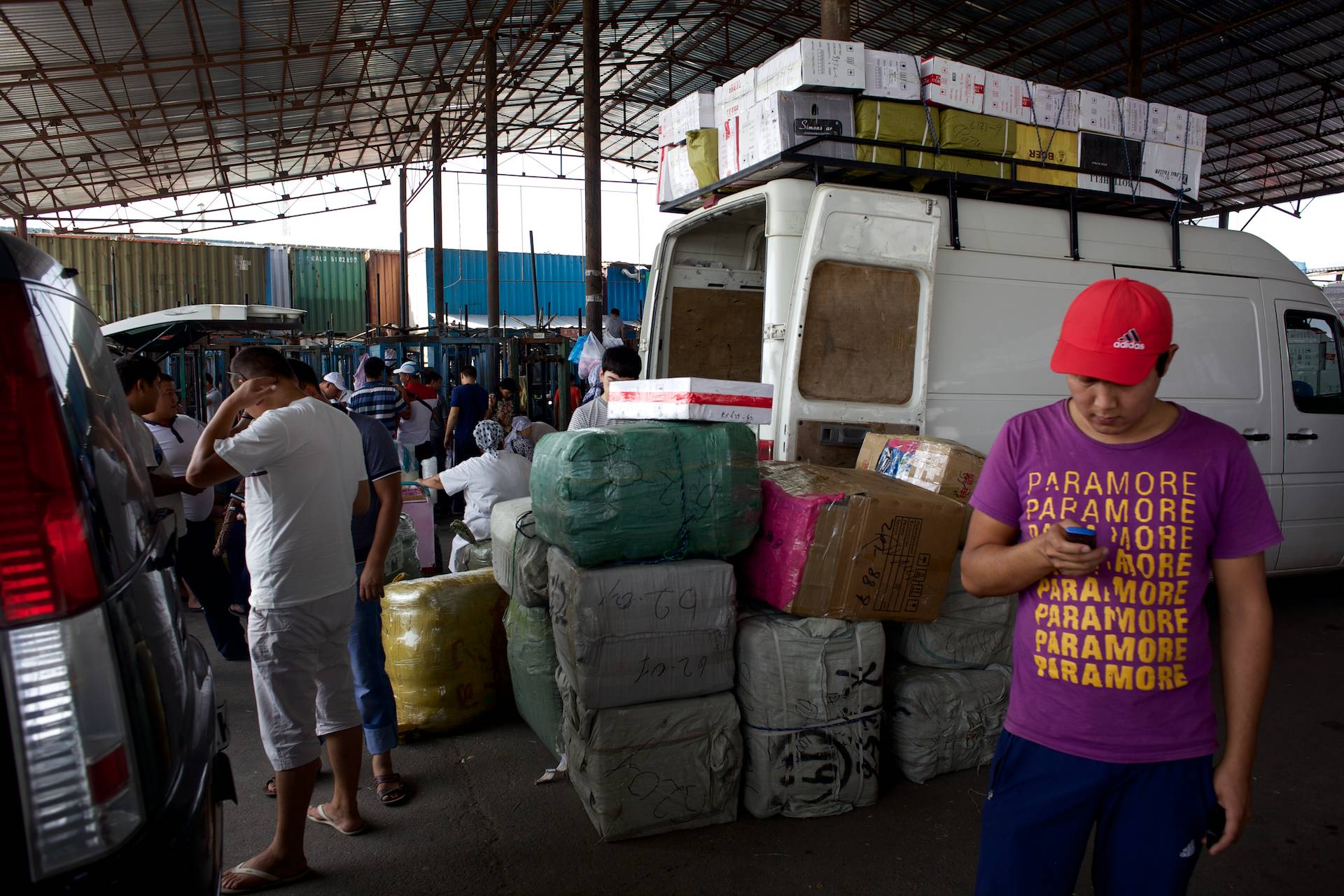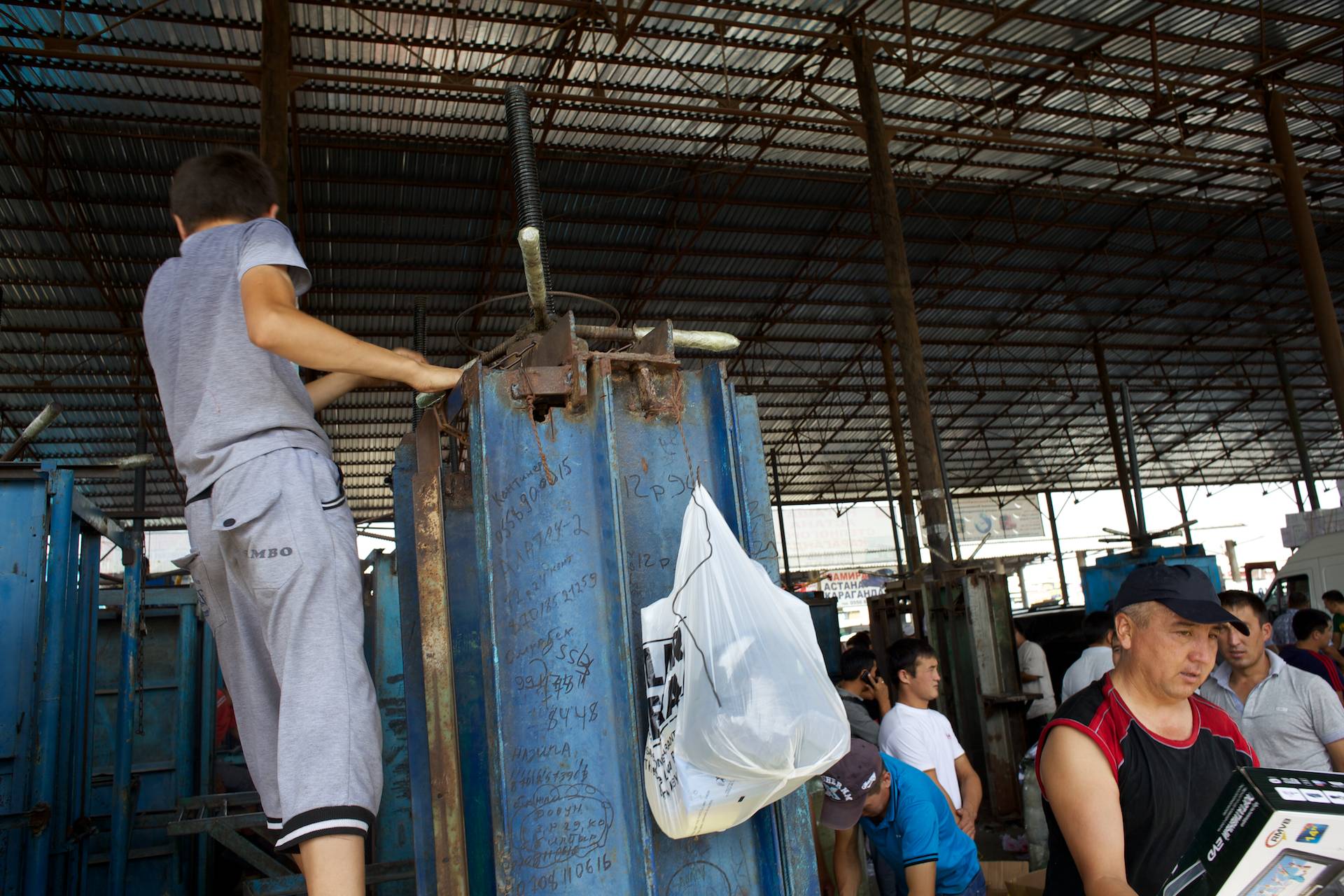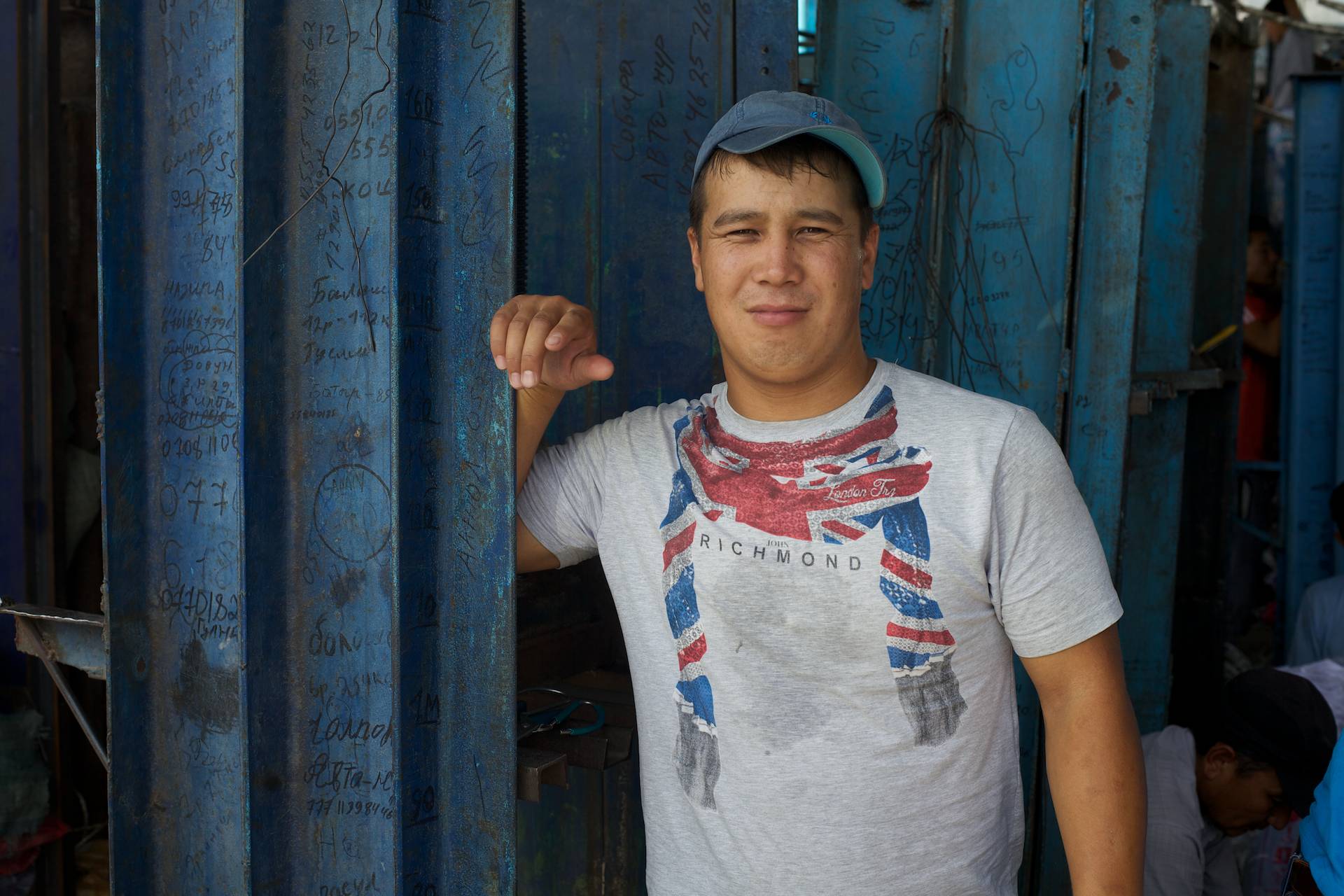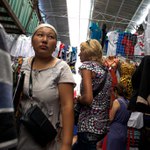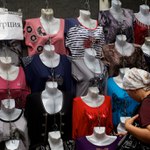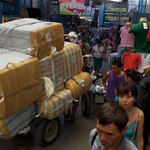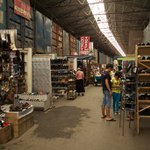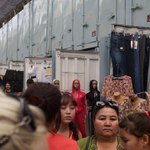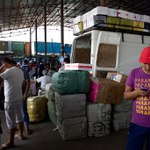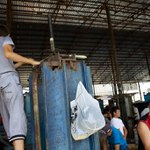Dordoi Bazaar
These are images from Dordoi Bazaar in the outskirts of Bishkek, Kyrgyzstan. Built with tens of thousands of double-stacked shipping containers – the lower ones serving as shops and upper ones as storage rooms – Dordoi is one of Asia's largest markets. It is organised in sections according to the origin or type of goods, with the pricier merchandise coming from Turkey, South Korea or Europe. However, the vast majority of goods is "made in China" and shipped by truck across the Tian Shan range to Kyrgyzstan, following one of the ancient trade routes known collectively as the Silk Road. While, like the erstwhile Silk Road entrepôts, the bazaar continues to serve as a major hub for the reexport of Chinese merchandise, silk has given way to electronics, shoes and clothes adorned with the labels of familiar global brands.
We visit the packing station, where piles of clothes are pressed into bales for onward transport. People are initially sceptical about me taking pictures, but relax after a while. Our friend who shows us around explains that most of the bazaar economy is informal. He worked here himself and sees things with an insider's eye. Police tour the area and collect "fines", but the bazaar is too big, too important to be fully "formalised". There is too much at stake. Many of the rich and powerful have links to Dordoi, and the market offers employment for tens of thousands of people – from cart pullers to shop assistants and entrepreneurs.
Dordoi is home to many aspirations; it fulfils the promise to make 21st century consumer culture available to the masses. The empty shipping containers reused as sales outlets are like sediments of the global economy. Brimful with goods produced in China and channelled through the old arteries of the Central Asian trade network, the containers are finally stranded here. Sold for a mere thousand dollars, they are a material testimony to the trade-imbalance between China and Kyrgyzstan – and, maybe, an ironic postscript to former Cold War rhetoric and its promise that only liberal democracy would open the gate to the manna of capitalism.
Privacy Policy
Plain and simple: I take the principle of minimal data collection serious and try hard not to collect or process any personal data beyond the basics required to serve and maintain the website.
Specifically,
- We do not use cookies.
- We do not use third party analytics.
- There is no contact form that would allow you to enter personal data.
- We do not use advertising to run this website.
In order to serve this website, your IP address and information about your browser, operating system and screen resolution need to be collected and processed. theotherimage.com is a simple, handcrafted, static website hosted by Netlify. It uses fonts by Adobe Fonts (formerly Typekit). Both Netlify and Adobe automatically collect usage data, either generated by the use of this website or from the service infrastructure itself. This data is used for accounting and analytic purposes as well as for technical maintenance by these two companies. Neither Netlify nor Adobe use cookies to track you. Specifics can be found in their respective privacy policies.
The videos on this website are hosted by Vimeo. Depending on your browser configuration, Vimeo may use cookies and other tracking technologies as stated in their respective privacy policies.
If you have any questions about this privacy policy, please write to: Martin Saxer, LMU Munich, Department of Social and Cultural Anthropology, Oettingenstr. 67, 80538 Munich, Germany.
This privacy policy has been updated on 30 December 2018.
![[ the other image ]](/images/logo/toi-logo_2x.png)
